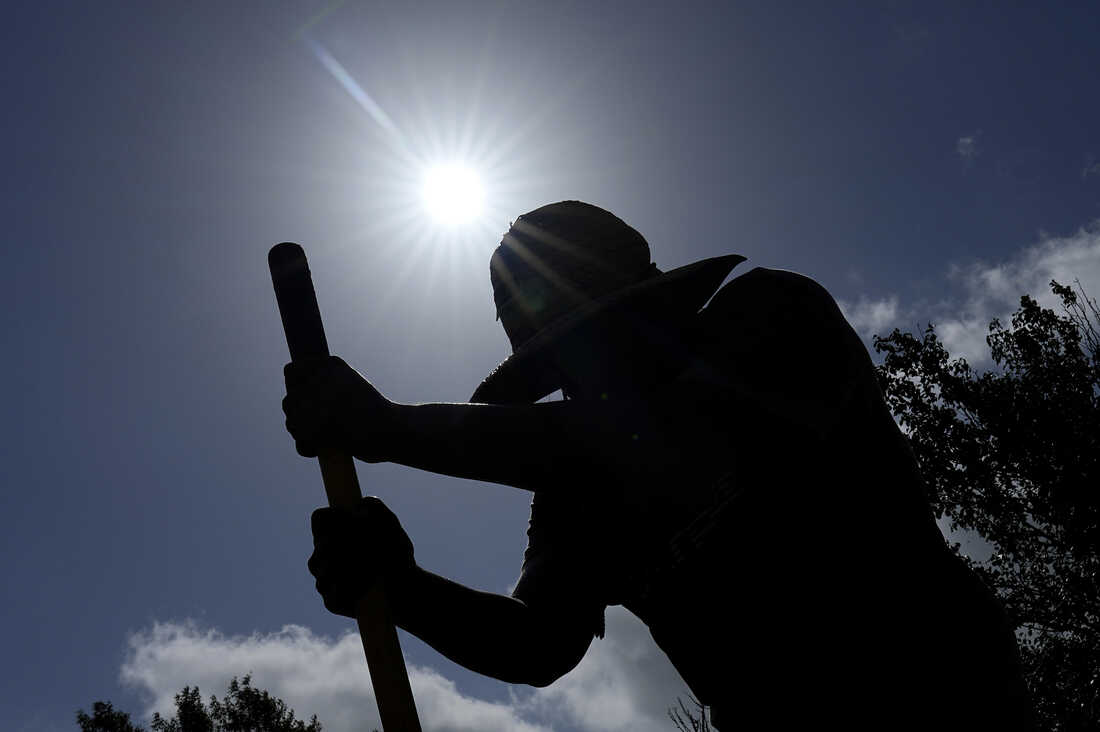
Shifting away from fossil fuels is leading to a transformation in home heating systems, as the UK aims to eliminate gas boilers by 2035 to reduce carbon emissions. The main contender for replacing gas boilers is the heat pump due to its high efficiency, converting one unit of energy into about three units of heat. However, the transition is not straightforward. Heat pumps operate at lower water temperatures, necessitating larger radiators and better insulation, which can increase costs. While heat pumps are more energy-efficient, electricity costs about three times more than gas, partly negating the efficiency gains.

The Naga Students' Federation (NSF) has raised concerns about the environmental impact of the recent launch of a mega palm oil plantation drive in Nagaland. The NSF has raised concerns about the following potential impacts of the palm oil plantation drive:

As scorching heat waves grip the Southern and Southwestern United States, and temperatures soar across the Northern Hemisphere, NASA scientists have issued a warning that the worst of El Niño is yet to come. The experts predict that next year, 2024, could be even hotter due to the influence of El Niño, a natural climate pattern in the tropical Pacific that brings warmer sea-surface temperatures and affects weather patterns. Gavin Schmidt, Director of the NASA Goddard Institute for Space Studies, clarified that while El Niño has only recently emerged and is not solely responsible for the current extreme heat, the overall warming trend is primarily driven by climate change resulting from the burning of fossil fuels.

Escalating wildfire incidents in Canada have triggered a surge in the development and adoption of advanced detection systems. The ongoing catastrophic wildfire season has led to substantial investments in technologies aimed at identifying wildfires before they intensify. OroraTech, a German company with a Vancouver branch, operates eight satellites equipped with specialized infrared sensors that monitor temperature anomalies in grids of four-by-four meters. The data is integrated with information from other satellites to swiftly detect irregularities and provide real-time reports to clients, including firefighting and forestry services. OroraTech's software is also capable of predicting fire behavior, aiding in prioritizing firefighting efforts.

Green buildings have emerged as a vital aspect of India's pursuit of sustainability, with numerous green projects sprouting across the nation. Many stakeholders believe that these structures can effectively combat the escalating pollution crisis through sustainable construction methods. An Anarock report highlights that green buildings can curtail energy consumption by 20-30% and water usage by 30-50%, reducing the necessity for artificial lighting and air conditioning, subsequently lowering carbon emissions. Moreover, these structures have a more eco-friendly footprint compared to traditional buildings.

Adani Energy Solutions Limited (AESL) has achieved the necessary financial closure for its ambitious $1 billion project involving the establishment of a green high voltage direct current (HVDC) link. The initiative aims to bolster the greening process of Mumbai's power grid by augmenting the infusion of renewable energy into the city's system, thereby meeting its escalating electricity requirements. Scheduled to commence construction in October of this year, the 80 km comprehensive project is a significant step toward reinforcing the region's sustainable energy infrastructure.

A new study reveals that the Greenland ice sheet is losing mass at an accelerating rate and that this is due to a combination of factors, including climate change, ocean warming, and Greenland's topography. Greenland’s ice sheet is the single largest contributor to sea level rise from land ice, and it is estimated that the ice sheet could contribute up to 7 meters (23 feet) of sea level rise if it were to melt completely.

The Intergovernmental Panel on Climate Change (IPCC) has recently concluded its 59th session and elections, officially marking the start of its seventh assessment cycle. The IPCC, established in 1988 by the World Meteorological Organisation and the UN Environment Programme, is renowned for producing comprehensive assessment reports that serve as the most authoritative source of scientific knowledge on climate change. With six assessment cycles completed and the final synthesis report of the sixth cycle released in March 2023, the IPCC has begun its new cycle to produce the next assessment report.

This friendship day, opt for an eco-friendly alternative if you are planning to buy a friendship band for your buddy. Here are some great ideas for making eco-friendly friendship bands. Here are a few of my favourites:

The University of Lucknow, in collaboration with the Happy Thinking Laboratory, organized a special lecture on 'Climate Imbalance and Sustainable Living' at the counselling and guidance cell. The event took place on Monday, with Anita Bhatnagar Jain, the former additional chief secretary of Uttar Pradesh, as the chief speaker. The lecture aimed to raise awareness about climate change and its impact on the environment.